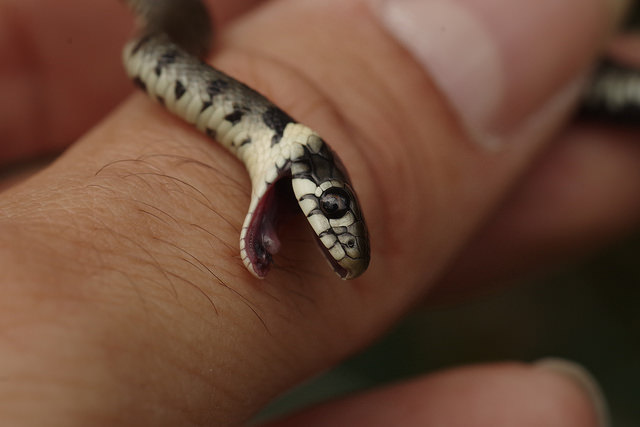Pochard, Tufted Duck and Gadwall broods
2 Pochard broods on the scrape and reservoir lagoon are this morning's highlight. Pochard are on the red list of Birds Of Conservation Concern (BoCC4), along with Lapwing that have also bred well here this spring
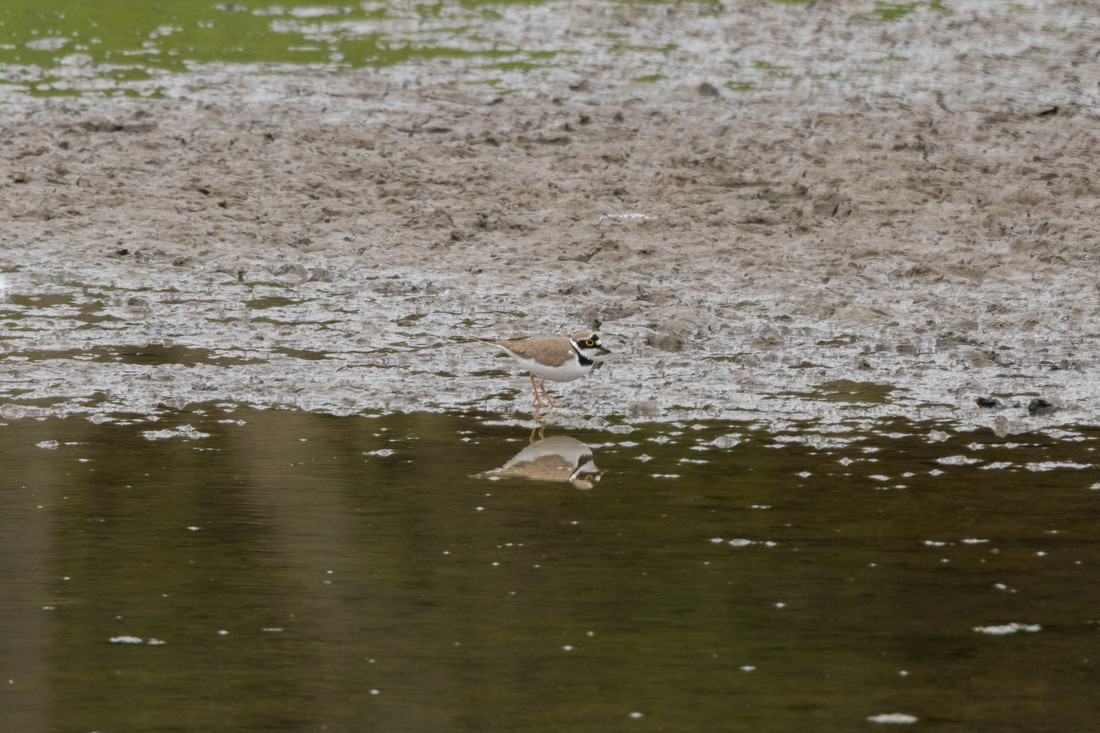
2 Little Ringed Plover - main lake
2 Lapwing juvs - scrape
1 Gadwall brood(2) - scrape
2 Pochard broods - scrape(4), reservoir lagoon(7)
3 Tufted Duck broods - reservoir lagoon, scrape, entrance lake
3 Teal - scrape
2 Common Tern - main lake
May bird highlights: Shelduck, Garganey, Turnstone, Snipe, Jack Snipe, Greenshank, Wood Sandpiper, Dunlin, Black-Tailed Godwit, Curlew, Oystercatcher, Green Sandpiper, Common Sandpiper, Ringed Plover, Peregrine, Kestrel, Buzzard, Red Kite, Hobby, Common Tern, Iceland Gull, Mediterranean Gull, Wheatear, Spotted Flycatcher (see below), Yellow Wagtail, Nightingale.
Spring migrant passerines recorded so far include Chiffchaff, Blackcap, Reed Warbler, Sedge Warbler, Sand Martin, Swallow, Swift, Yellow Wagtail, House Martin, Skylark, Willow Warbler, Garden Warbler, Lesser Whitethroat, Whitethroat and Wheatear.
Migrant waders can best be found on the muddy marsh or the wader scrape. Lapwing, Little Ringed Plover and Redshank are breeding in both these habitats. Sand Martins have occupied 97% of nest chambers occupied by mid-June. There's warber species to be found in the scrubby areas of the reserve, Chiffchaffs are singing from the woodlands, and there are dozens of Reed Warbler singing from all the reedbed areas. Look for Hobby hunting Dragonflies and Sand Martins.
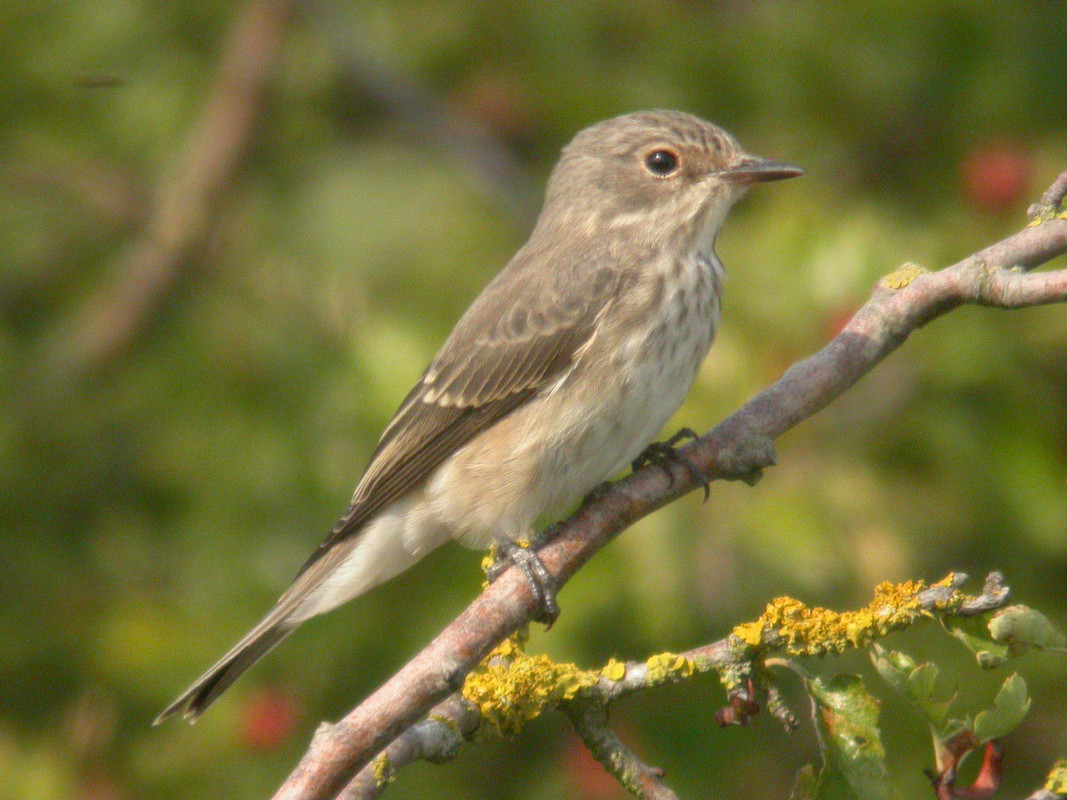
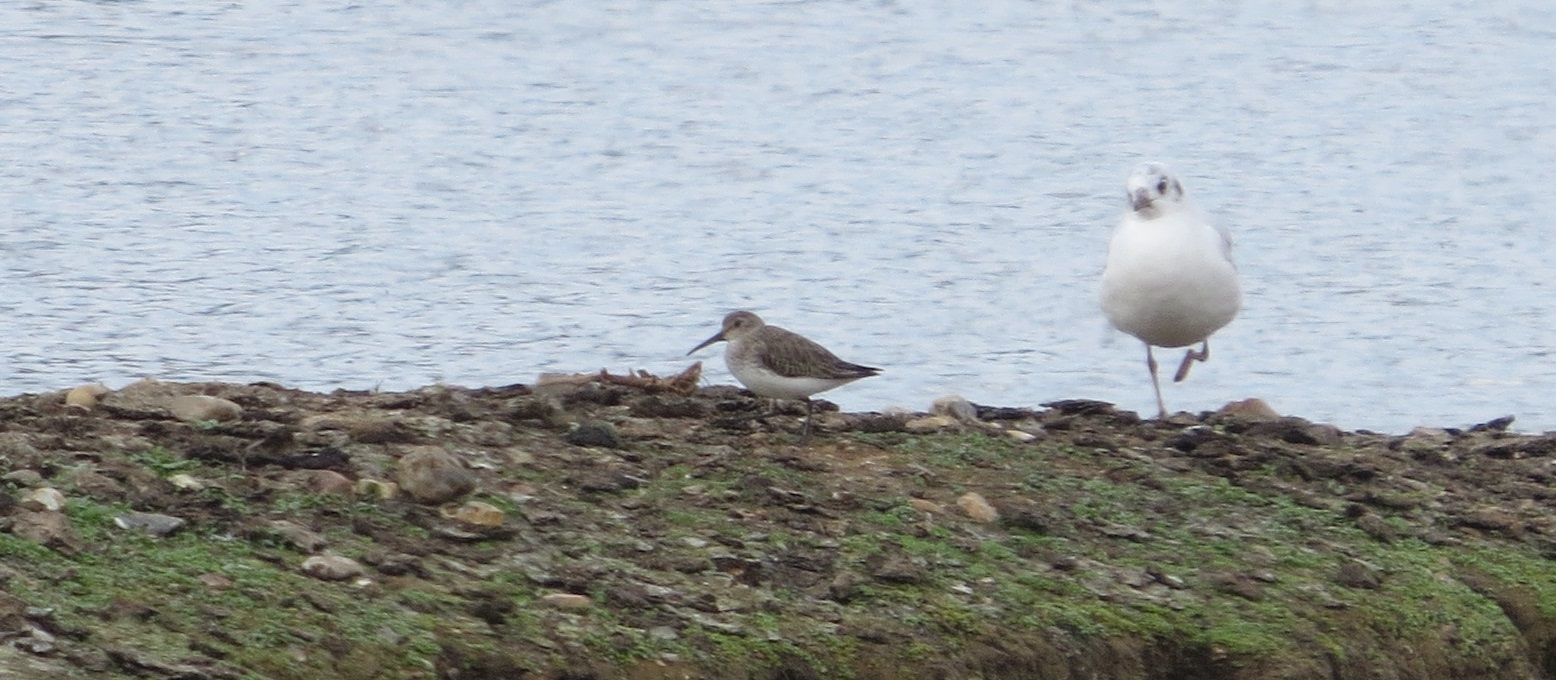
Invertebrates: (June) Rose Chafer, Honey Bee, Buff-tailed Bumblebee, Yellow-legged Mining Bee, White-tailed Bumblebee, Grey Patch Mining Bee, Tree Bumblebee, Red-tailed Bumblebee, Cuckoo Bee sp., Brimstone, Comma, Speckled Wood, Peacock, Orange Tip, Small White, Large White, Holly Blue, Red Admiral, Green Hairstreak, Common Blue, Red Willow Leaf Beetle, Birch Catkin Bug, Leather Bug sp., Parent Bug, Robber Fly sp.,Umbellifer Longhorn Beetle, Click Beetle, Red-headed Cardinal Beetle, St.Mark's Fly, Plum Longhorn Beetle, Common Zebra Spider, Hairy Dragonfly (see below), Azure Damselfly, Common Blue Damselfly, Blue-tailed Damselfy, Broad-bodied Chaser, Large Red Damselfly, Norfolk Hawker(2).
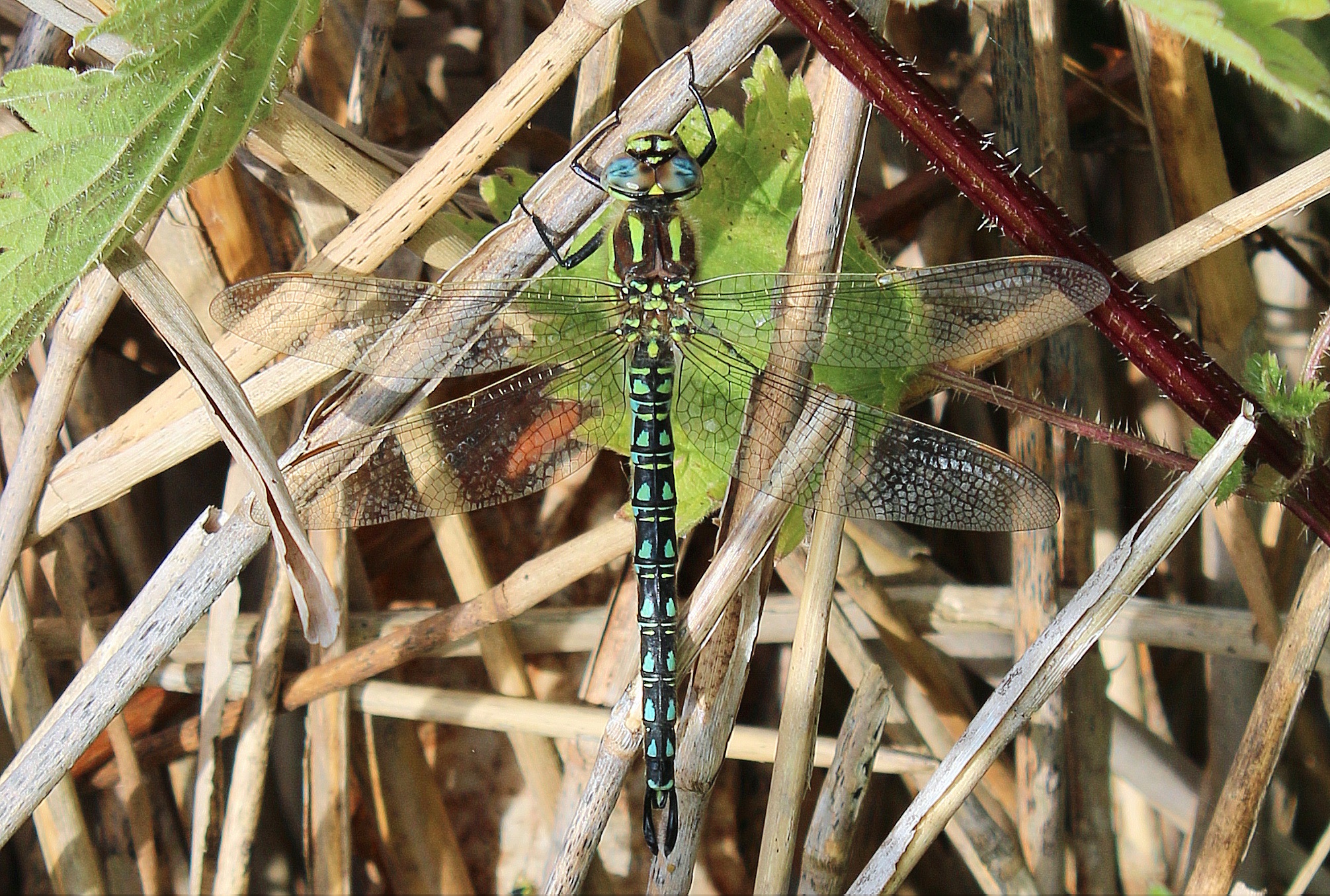
Flowering plants: Southern Marsh Orchid, Daisy, Lesser Celandine, Cut-leaf Cranesbill, Marsh Marigold, Yellow Iris, Cow Parsley, Ragged Robin, Common Hawkweed, Nipplewort, Creeping Buttercup, Common Mallow, Salad Burnet, Ox-eye Daisy, Poppy, Bird's-foot Trefoil, White Water-lily, Herb Robert, Bramble, Meadow-sweet, Marsh Woundwort, Purple Loosestrife, Common Spotted Orchid, Meadow Vetchling, Ox-eye Daisy, Common Vetch, Pyramidal Orchid.
Reptiles: Slow Worms (46 juveniles, 19 females, 7 males), 2 Grass Snake (juvenile - see below) - 2nd June survey.
